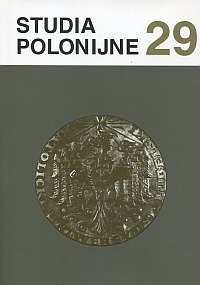The Church in Relation to the Polish Community Abroad and Poles in the World
Main Article Content
Abstract
From the beginning of the state’s existence the Catholic Church in Poland played a special role: it united the nation, supported it, and showed perspectives for survival in its most difficult periods. Many people even wonder why in the Polish character there is so much respect for Catholicism and for the Church. Polish literature, especially memoirs, often expresses these special bonds. Also foreign memoirists notice this.
The priest was also the keystone for all Polish organizations abroad. This particular heritage of the Church’s existence in the structure of the Polish community abroad was constantly supported by John Paul II – a special protector of this community. The Polish language Church cultivating the traditions and customs of the Old Country, has its rich history. This seems to speak for stability of such arrangements as the ethnic parish or – as we sometimes say – the Polish community parish, Polish associations, the Polish school (that, however, for years has been using the language of the country it is situated in), and events.
The Catholic Church on the territory of the whole USSR fulfilled a unique function. It was not only a strictly religious function. As a rule, this was a Church of one national group, i.e. the Polish Church, although also other nations, especially Lithuanians and Germans, used its services. However, it was almost universally considered to be the „Polish” Church. It remained an element that unified all Poles. Throughout the whole period of Poland's partitions as well as after it, on the vast territories of the Tsarist, and then Soviet empire, the Catholic Church was the main anchor as a center for propagating Polish culture and education, Polish national traditions, as well as charity work that was unknown in the Communist system. The Catholic Church was also the only legal opposition, first to the Tsarist authorities, then to the Soviet ones, that de facto represented the Poles and inhabitants of Polish origin. Hence, when anywhere in the East a Polish priest arrived among Poles, he reminded them of Poland, about the native lands, the villages and towns, homes and churches they had left. The priests in the East lived courageous lives, with the bravery of the first Christians, without being afraid of persecutions. They did not lose heart in the face of adversities, they did not stop working and maintained close ties with their congregations, without making any differences between them. By their attitude they taught that suffering is sensible. They gave their congregations the will to survive. They testified that resurrection will come after the cross – a victory over the powers of evil. And it did come. The sacrifice of their lives was not in vain.

